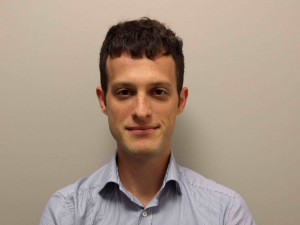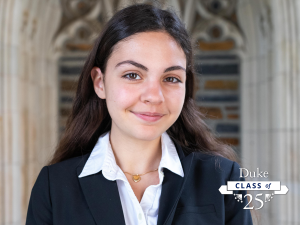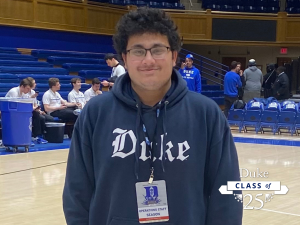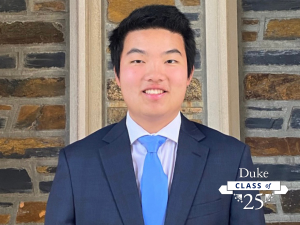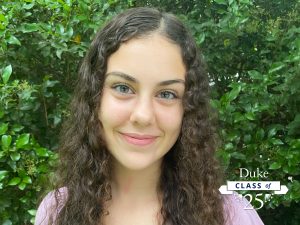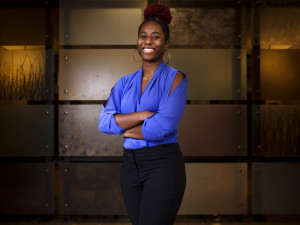Department of Statistical Science Chair Amy Herring has been named Dean of Natural Sciences and Professor of Political Science Kerry Haynie has been appointed to a second term as Dean of Social Sciences, Dean Gary Bennett announced Tuesday. In sharing the announcement, Bennett also expressed his gratitude to Susan Alberts, Robert F. Durden Distinguished Professor of Biology, for her several impactful years as Dean of Natural Sciences. Bennett noted that in returning full time to her research, “Susan is… read more » about Herring, Haynie to Lead Natural Sciences, Social Sciences Divisions; Alberts to Return to Research
A new “atlas” developed by researchers at Duke University School of Medicine, University of Tennessee Health Science Center, and the University of Pittsburgh will increase precision in measuring changes in brain structure and make it easier to share results for scientists working to understand neurological diseases such as Alzheimer's disease. The tool, the Duke Mouse Brain Atlas, combines microscopic resolution, three-dimensional images from three different techniques to create a detailed map of the entire mouse… read more » about Brain ‘Atlas’ to Help Study Neurological Disorders
It seems counterintuitive, but it can be a wonderful feeling to realize that you’re wrong.Duke philosophy and neuroscience professor Felipe De Brigard didn’t feel great at first when he realized that some claims in the paper that helped establish his career 15 years previous were wrong. But then he had a chance to discuss his errors publicly at a large conference. He was followed in his talk by other scientists, including John O’Keefe, a Nobel Laureate who, like De Brigard, studies the hippocampus in the brain.“John ended… read more » about When I Was Wrong: Faculty Lessons From Their Mistakes
Felicia Wang (T ’25) is an artist and Mathematics major with a double minor in Computer Science and Political Science. Her career interests converge in climate policy, and she leaves behind something special at Duke: Climate Cafes. Climate Cafes are campus meetups where students can discuss themes around emerging issues of climate change. Bryan Koen the Assistant Director for Education & Experiential Learning at the Nicholas Institute, remembers, Wang discussing the need for… read more » about Graduating Senior Felicia Wang Leaves Impact Through Climate Cafe Programming
We are happy to share that PhD alum and distinguished professor Carlos Carvalho has been named the new President of University of Austin!Read the full announcement. read more » about Ph.D Alum Carvalho Named President of University of Austin
Benjamin Peng is a Trinity senior graduating in 2025 with a double major in Classical Studies and Computer Science. We asked him to tell us a little bit about his experience, and about the unexpected benefits of graduating with these two very different majors.Were you always interested in Classical Studies?I came into Duke with no experience with Latin and no experience with the classics more broadly, but I've come to really appreciate the four years I've spent studying Latin, and I can honestly… read more » about Introducing Trinity’s Class of 2025: Benjamin Peng
Anne-Gaëlle Saliot, associate professor of Romance Studies and director of the Center for French and Francophone Studies, has been knighted by the French government as a member of the Ordre des Palmes Académiques. Established by Napoleon in 1808, the Ordre des Palmes Académiques is the oldest non-military French recognition and one of the world's oldest civil awards. The honor of chevalier, or knight, recognizes excellence in research, teaching and the promotion of French language and culture. … read more » about Anne-Gaëlle Saliot Named Knight of the Ordre des Palmes Académiques
North Carolina native Sidney Jordan has known about Duke for most of her life.“I started coming here for soccer camps when I was six or seven years old and remember thinking the campus was such an amazing place that I just wanted to be here. But at that age, how much does a kid really understand about college?”Years later, while tagging along on her older sister’s campus tour, Jordan’s perspective deepened. "Everything I saw, I liked. The academics are obviously challenging, and I wanted that, but I also loved the… read more » about From Soccer Camp to the Hippocratic Oath
Alexander Volfovsky, associate professor of Statistical Science, is the recipient of the 2025 Gertrude M. Cox Award for excellence in applied statistics. Established in 2003 through a joint agreement between the Washington Statistical Society (WSS) and RTI International, the award annually recognizes an early to mid-career statistician who has made significant contributions in survey methodology, experimental design, biostatistics and/or statistical computing. Volfovsky’s research is at the intersection of theory… read more » about Alexander Volfovsky Receives Gertrude M. Cox Award for Excellence in Applied Statistics
“Get off my lawn!” Funny as a meme but maybe scary in real life, this short sentence is synonymous with an elderly man shouting at kids whose bikes have gotten too close to a well-manicured front yard. But it could just as well represent a female bird, aggressively chasing whatever intruder gets too close to her nest. Not any female bird, though. An international team of researchers led by Sara Lipshutz, assistant professor of Biology at Duke University, found that female birds who can only… read more » about Many Paths to an Angry Bird: Uncovering the Roots of Aggressiveness in Female Cavity-Nesting Birds
Trinity College of Arts & Sciences is home to 80 percent of Duke's undergraduate student body, and our esteemed and ever-growing alumni community will soon welcome another graduating class. Among Trinity's Centennial class of graduates are dancers, medical researchers, future teachers and a Rhodes Scholar.Duke's Commencement ceremony will be held on Sunday, May 11, and Computer Science senior Danica Bajaj will represent Trinity as the undergraduate student Commencement speaker. Many Trinity departments and programs are… read more » about Celebrating the Trinity Class of 2025
Herbert Kitschelt, the George V. Allen Distinguished Professor of International Relations, is the 2025 recipient of the Johan Skytte Prize in Political Science, in honor of his groundbreaking research on party systems.Kitschelt is primarily known for his studies on how European multiparty systems are structured. Throughout his career, he has investigated how political parties, in competition with each other and as a result of changing attitudes and behaviors within the electorate, have… read more » about Herbert P. Kitschelt Awarded the 2025 Johan Skytte Prize in Political Science
As a high school student in South Carolina, Michelle Schultze had certain standards when exploring colleges: a strong economics department, an established Russian language program and the chance to study political science with a public policy angle. She found her trifecta — as well as a pathway to her future — at Duke. Though she took Spanish throughout high school, Schultze began teaching herself Russian, and her mother’s native language, Greek, during her junior year while remote learning during the pandemic. “I had… read more » about The Currency of Hope
“Half Century Club” friends gather for Alumni Weekend’s Class of 1975 Downtown Bus Tour. (L to R: Alie Fetterman; Ian Fetterman, Pratt’75, Amy Webb, T’75; David Webb, T’75; Sue Kern, T’75; Martha Gayle, T’75; Mary Laxton, T’76. (Cara August/Trinity Communications) Early spring at Duke means Cherry Allée in full bloom, students scattered across the kempt green lawns of Abele Quad, and lots and lots of campus visitors. Some are new, touring with hopes of one day becoming a Blue… read more » about 50 Years of Friendship
The Duke Campus Farm typically sees more visitors than usual on Fridays, when it holds Community Work Days and welcomes students, faculty, and community members to help run tasks and learn more about its sustainable agriculture practices.However, this particular Friday, April 11, was a bit special. Instead of us volunteers driving wheelbarrows back and forth, mulching or weeding, several members of the Vilgalys Lab at Duke instructed participants on how to grow our own mushrooms.The process begins with inoculation: placing… read more » about Growing Your Own Mushrooms Is Easier Than You Think, Thanks to Workshops at the Duke Campus Farm
Duke biology professor Fred Nijhout has been elected to the prestigious National Academy of Sciences.Nijhout, the John Franklin Crowell Distinguished Professor of Biology, has been a member of the Duke faculty since 1977. His scholarship focuses on developmental physiology and understanding how complex traits arise through, and are affected by, the interaction of genetic and environmental factors.Much of his research has focused on how butterflies and other insects develop from a larva to a winged adult — how… read more » about Biologist Fred Nijhout Elected to National Academy of Sciences
Viktoria Wulff-Andersen is a graduating senior with a major in Political Science, minor in Sociology and a certificate in Philosophy, Politics and Economics. She has served as a Trinity Ambassador for Political Science. Trinity Ambassadors are student volunteers, nominated by their departments, to serve in this unique and important role.We asked a few of the ambassadors from the Class of 2025 to share their favorite memories from Duke. The below interview has been slightly edited for clarity.What was one of the most… read more » about Notes From the Class of 2025: Learning Through "Life Stories"
Jaeden Toy is a graduating senior with majors in Computer Science and Russian and a minor in Linguistics. He has served as a Trinity Ambassador for Computer Science. Trinity Ambassadors are student volunteers, nominated by their departments, to serve in this unique and important role.We asked a few of the ambassadors from the Class of 2025 to share their favorite memories from Duke. The below interview has been slightly edited for clarity. What was one of the most impactful classes you took during your time at… read more » about Notes From the Class of 2025: Take a Chance and Say "Yes"
Adway Wadekar is a graduating senior with majors in Mathematics and Statistical Science and a minor in Economics. He has served as a Trinity Ambassador for Statistical Science. Trinity Ambassadors are student volunteers, nominated by their departments, to serve in this unique and important role.We asked a few of the ambassadors from the Class of 2025 to share their favorite memories from Duke. The below interview has been slightly edited for clarity. What was one of the most impactful classes you took during… read more » about Notes From the Class of 2025: Making Statistics Stick
One is a first-generation Indian-American who grew up in Princeton, N.J. The other grew up in the rural United States, rodeo riding. Though Danica Bajaj and Lucas Vaughan come from different upbringings, they have one thing in common: They were selected as the undergraduate and graduate student commencement speakers for the Class of 2025. A Message of HopeBajaj, who will graduate with a computer science major and a philosophy minor, says her message to students this year will center on “finding hope and community… read more » about 2025 Student Commencement Speakers: Different Backgrounds, One Special Day
Sonia Green is a graduating senior with majors in African & African American Studies and Visual & Media Studies. She has served as a Trinity Ambassador for African & African American Studies. Trinity Ambassadors are student volunteers, nominated by their departments, to serve in this unique and important role.We asked a few of the ambassadors from the Class of 2025 to share their favorite memories from Duke. The below interview has been slightly edited for clarity. What was one of the most impactful… read more » about Notes From the Class of 2025: Reevaluating "Traditional" Academia
Duke University awarded its inaugural Judith Decker Prize for excellence in undergraduate teaching this year to three faculty members—Catherine Admay, Dorian Canelas and Karin Shapiro. The prize winners were chosen from 120 faculty candidates identified last spring during an open nomination period where Duke faculty, staff, alums, and current students submitted over 500 nominations.Duke’s Office of Undergraduate Education had student writers interview professors Admay, Canelas and Shapiro and get a take on their teaching… read more » about Three Decker Award Winners on Engaging Students in Lifelong Learning
Alejandra Gonzalez-Acosta is a graduating senior with a major in Psychology and minors in Visual Arts and Computational Biology. She has served as a Trinity Ambassador for Psychology. Trinity Ambassadors are student volunteers, nominated by their departments, to serve in this unique and important role.We asked a few of the ambassadors from the Class of 2025 to share their favorite memories from Duke. The below interview has been slightly edited for clarity. What was one of the most impactful classes you took… read more » about Notes From the Class of 2025: Seize Opportunities and Learn About Yourself
Alex Wang is a graduating senior with majors in Political Science and Economics and a minor in Psychology. He has served as a Trinity Ambassador for Political Science. Trinity Ambassadors are student volunteers, nominated by their departments, to serve in this unique and important role.We asked a few of the ambassadors from the Class of 2025 to share their favorite memories from Duke. The below interview has been slightly edited for clarity. What was the most important thing you’ve learned at Duke?The… read more » about Notes From the Class of 2025: From FOCUS to Favorite Professor
Anna Tornatore is a graduating senior with majors in Evolutionary Anthropology and Biology. She has served as a Trinity Ambassador for Evolutionary Anthropology. Trinity Ambassadors are student volunteers, nominated by their departments, to serve in this unique and important role.We asked a few of the ambassadors from the Class of 2025 to share their favorite memories from Duke. The below interview has been slightly edited for clarity. What was one of the most impactful classes you took during your time at Duke… read more » about Notes From the Class of 2025: Celebrating Differences and the Power of Relentless Aspiration
The inaugural Southern Roots: Growing University-Assisted Community School Partnerships symposium, held over two days in mid-April at North Carolina Central University and Duke University brought together nearly 200 public school practitioners, community-based partners, and higher education students, faculty and staff from across the U.S. South. Participants engaged in dynamic workshops, site visits, student-led research and movement building, and focused on established and emerging… read more » about Inaugural ‘Southern Roots’ Symposium Brings Together Public-School Educators, Community-Based Partners and Higher Ed
Trinity faculty member Naiima Khahaifa has been selected as one of 62 scholars — selected from a pool of over 2,300 applicants through a multi-stage peer review process — to receive a fellowship from The American Council of Learned Societies (ACLS).As the program’s longest running program, the ACLS Fellowships support outstanding scholarship in the humanities and social sciences. In 2025, the program will award more than $3.5 million in support of outstanding scholarship in the humanities… read more » about Naiima Khahaifa Named Fellow of the American Council of Learned Societies
Graduating double major in Physics and Visual Media Studies with a concentration in Cinematic Arts, Nik Narain has been announced as this year’s recipient of the Louis Sudler Prize. Nik Narain has been selected for this award for his distinguished record of excellence in performance and creation in writing for stage/screen and comedy performance. read more » about Nik Narain Receives the 2025 Louis Sudler Prize
Duke Dance terminal degree, MFA in Dance: Embodied Interdisciplinary Praxis provides an exclusive opportunity for graduate student-artists to devise interdisciplinary academic and artistic project works in their respective fields of expertise supported with significant coursework within and outside of Dance. This year, the Dance Program will celebrate five graduating artists, Natalia Cervantes, Indigo Cook, Sade Jones, emily liptow, and Chania Wilson, who bolstered the cultural, social, ritual, diasporic, and artistic… read more » about Congratulations to the MFA in Dance Class of 2025
Biomedical engineering. Climate science. Political science. Global Health. While these departments are housed in buildings far from each other on campus, their current research was all spotlighted at the Duke Undergraduate Research Symposium on April 10. Over the course of two hours, 120 budding researchers presented their work in Penn Pavilion, eagerly chatting with peers, faculty, and community members alike. The level of professionalism was obvious upon a glance at the poster titles. The symposium was strongly… read more » about Posters Galore and More: Undergraduate Research in the Spotlight








